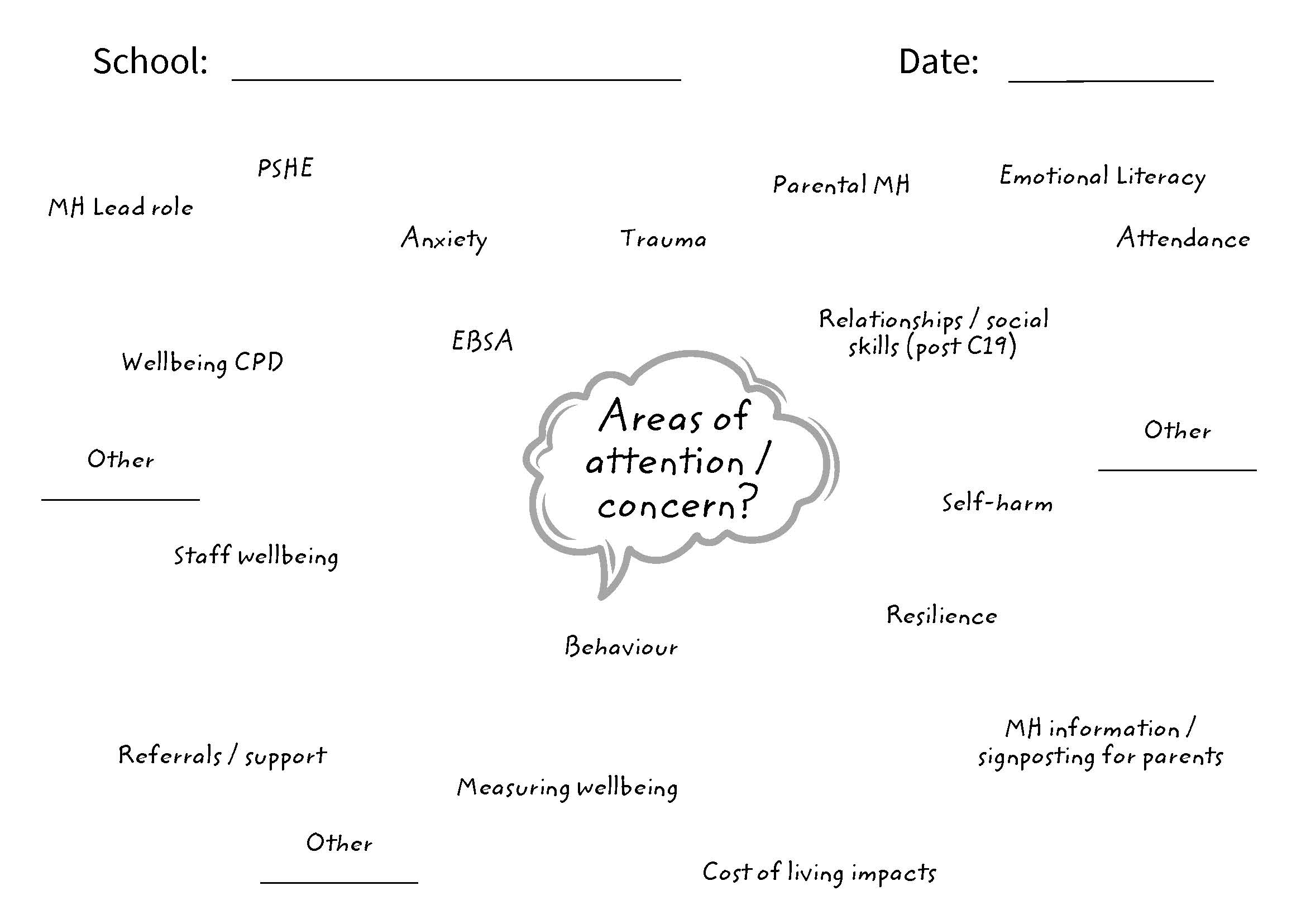Whole School Approach - Self-reflection Tools
Here we provide information on / access to a range of audit tools we hope will meet a range of needs and support individual schools. We believe in an asset-based approach to audit - enabling you and the school community to recognise and celebrate what's in place and working well already... We also recognise that every school is different. This is why we include information on a range of approaches / tools.
"Start where you are. Use what you have. Do what you can"
For example - you could use this quick reflection as a staring point...
(page 1 of 3)
We have also created some online tools freely available to schools
A quick and easy 'Litmus Test'
(using the one created by Dr Pooky Knightsmith in the Mentally Healthy Schools Workbook)
Six Questions, 'gut reactions', on a scale of 1 to 10 and an opportunity to quickly engage and involve stakeholder groups - C&YP, staff, parents, governors et al that will help identify strengths and areas to focus on. and identify where the priorities of different stakeholders are. Plus an option to print a summary report saved each time you do it.
Rapid Self-Assessment
Slightly more in-depth that the Litmus Test focusing on some specific aspects of the PHE 8 priniciples and created with Cornwall in mind. A summary report is saved each tiime you complete the RSAT.
NB The online tool is only available to schools in Cornwall. Please contact us if you would like a login / password (using a school / setting e mail address)
Other Tools
SWAN Reflective Tool
Supportive, Welcoming, Altogether, Nurturing using a Graduated Response. A reflective tool for tricky times?
(originally developed by the Education Psychology Service and Headstart Kernow as part of a post Covid Recovery Curriculum it has been updated as a conversation starter to help schools consider wellbeing in, what feel like, turbulent times... )
The Resilience Framework / Academic Resilience
The Academic Resilience Approach (ARA) is a whole-school-based community development model designed by Angie Hart and Lisa Williams with input from school practitioners and young people. It aims to equip schools with the tools to support students to overcome adversity and improve their mental health, and, in turn, educational outcomes. It is based on the Resilience Framework.
Other reflective tools that may be of interest
Reflect on your setting’s existing approach to mental health and wellbeing - you can use:
- the National Children’s Bureau (NCB) tool
- Leading Change, developed by the Anna Freud Centre
- TIS UK Self-assessment Implementation checklist for Protect, Relate, Regulate, Reflect - leading to the The TISUK trauma and mental health informed schools award
Specific tools
-
Preventing and addressing Emotionally Based School Avoidance - audit - see links here
- The Neurodiverse Classroom - Victoria Honeybourne (Book) - has an excellent and practical audit tool
- Sensory Audit for Schools and Classrooms (Autism Education Trust / Education Scotland) - This sensory audit is to help staff to assess and create an environment that enables the participation of pupils with autism. It does not cover all aspects, but gives ideas on the ways in which a setting might be altered if pupils experience sensory processing difficulties and find it hard or very anxiety-provoking to tolerate certain sensations or situations.
There are now a number of MH in School Awards that use an audit tool as the basis for the awards. We have some more information about some of the awards here.
Page last updated: 14 April 2023



